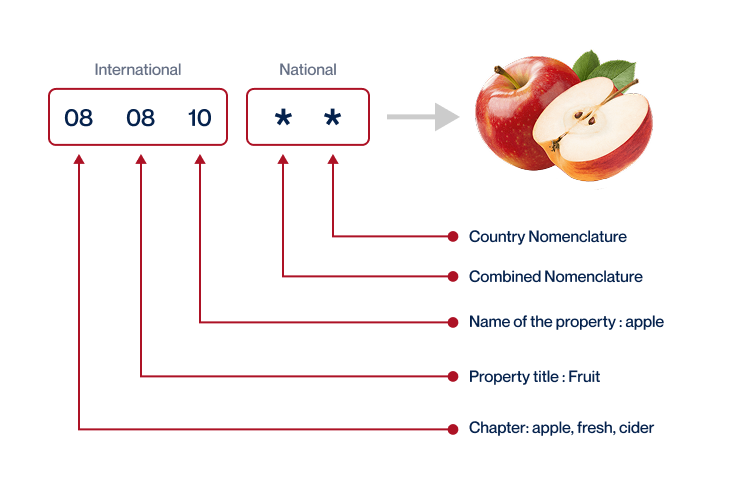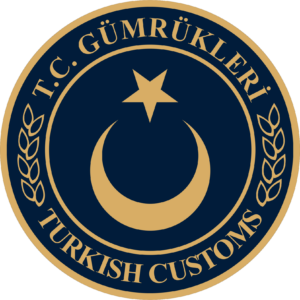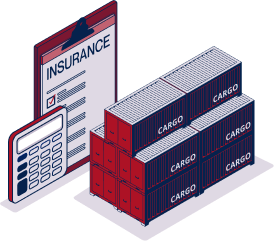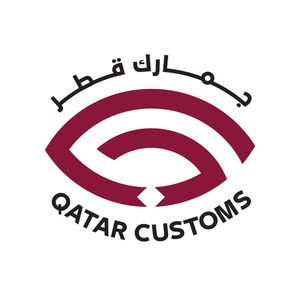Freight Shipping between Qatar and Turkey | Rates – Transit times – Duties and Taxes
Are you as lost as a camel in a Turkish bazaar when it comes to shipping goods between Qatar and Turkey? Grasping the intricacies of freight rates, transit times, or customs regulations can be a daunting task. In this comprehensive guide, we aim to untangle the complexities of the shipping process, exploring a variety of freight options such as air, sea, road, and rail transport.
We'll illuminate the often murky waters of customs clearance, duties, and taxes, offering expert advice specifically catered for businesses. If the process still feels overwhelming, let DocShipper handle it for you! Our global freight services turn shipping challenges into triumphs, handling every step of the journey from departure to arrival with precision and proficiency.
Which are the different modes of transportation between Qatar and Turkey?
Which are the different modes of transportation between Qatar and Turkey? Journeying between Qatar and Turkey doesn't mean hopping in a truck and crossing one border. It's like heading to a neighbor's birthday party but needing to traverse an entire city first. With countries and vast seas sprawled between them, some modes of transport could win in a race, but lose in logistics. So, here we'll decode the optimal pathways, be it sea, air, or a blend of both. Remember, there's no 'one size fits all'; settling on the ideal method depends on what you're shipping, when it needs to arrive, and what costs you're ready to bear. The goal? Smooth, efficient shipping tailored to your needs.
Need help with your shipment?
Need assistance with your shipment? Dont hesitate to contact us even for a simple question. Choose the option that suits you
Live chat with an expert Chat on WhatsApp Free Quote 24hHow can DocShipper help you

Sea freight between Qatar and Turkey
Qatar and Turkey share a thriving trade relationship, cemented by the call of the sea. The vigorous ports of Hamad in Qatar and Ambarli in Turkey act as bustling trade arteries, pumping high-volume shipments of goods between each other. Although it’s the tortoise to the air freight’s hare, ocean shipping trumpets cost-effectiveness as its winning trait, especially for bulky goods making the journey from Doha to Istanbul or vice versa.
However, this sea of opportunities may often resemble a stormy voyage for businesses. Think customs regulations wearing a sailor’s cap and cocking an eyebrow as you try to remember whether you filled out form X or Y or both. While ocean freight is economical, paperwork and compliance checks can sometimes make you feel like you’re threading a needle in rough waters. Worry not! In this guide, we will chart a smooth course through these choppy waves, eradicating common mistakes and empowering your business with best shipping practices. All aboard for a smoother sail ahead!
Main shipping ports in Qatar
Hamad Port
Location and Volume: Located in Umm Al Houl, approximately 14 miles south of Doha, Hamad Port is key to Qatar’s trade, with an impressive shipping volume of over 2 million TEUs.
Key Trading Partners and Strategic Importance: Hamad Port has significantly expanded Qatar’s trading partners, with key partnerships including China, India, and the United States. The port is strategically important due to its state-of-the-art technology and infrastructures, specializing in a wide range of cargos.
Context for Businesses: If you’re seeking to strengthen your trading links with the Middle East, Hamad Port could be an essential part of your logistics plans. Its comprehensive services and advanced facilities ensure efficient import/export processes, and it operates 24/7, ensuring the quick and safe transit of goods.
Ras Laffan Port
Location and Volume: Situated about 50 miles north of Doha, Ras Laffan Port primarily focuses on the export of Qatar’s substantial natural gas resources. The port handles a considerable volume of LNG shipments, ranking it among the world’s largest LNG exporting ports.
Key Trading Partners and Strategic Importance: Ras Laffan Port has a key role in Qatar’s export of LNG, with main trading partners being Asian markets, in particular Japan, South Korea, India, and China. Its strategic importance lies in its capability to support the country’s thriving oil and gas industry.
Context for Businesses: If your supply chain involves oil and gas products, Ras Laffan Port could be pivotal to your plans. The port focuses on the rapid and safe delivery of LNG to global markets, a testament to the modern infrastructure and safety measures integral to the port.
Doha Port
Location and Volume: Located in the heart of Doha, this port primarily serves as a destination for visiting cruise ships, though it also supports general and break bulk cargo movements. Its shipping volume is more modest compared to Hamad and Ras Laffan.
Key Trading Partners and Strategic Importance: While it may not hold as many key trading partners as Hamad or Ras Laffan, Doha Port still maintains active trade relationships within the Gulf Cooperation Council (GCC) countries. It also plays host to a large number of visiting cruise ships throughout the ‘winter’ cruise season, indicating its significance to the tourist industry.
Main shipping ports in Qatar
Hamad Port
Location and Volume: Located in Umm Al Houl, approximately 14 miles south of Doha, Hamad Port is key to Qatar’s trade, with an impressive shipping volume of over 2 million TEUs.
Key Trading Partners and Strategic Importance: Hamad Port has significantly expanded Qatar’s trading partners, with key partnerships including China, India, and the United States. The port is strategically important due to its state-of-the-art technology and infrastructures, specializing in a wide range of cargos.
Context for Businesses: If you’re seeking to strengthen your trading links with the Middle East, Hamad Port could be an essential part of your logistics plans. Its comprehensive services and advanced facilities ensure efficient import/export processes, and it operates 24/7, ensuring the quick and safe transit of goods.
Ras Laffan Port
Location and Volume: Situated about 50 miles north of Doha, Ras Laffan Port primarily focuses on the export of Qatar’s substantial natural gas resources. The port handles a considerable volume of LNG shipments, ranking it among the world’s largest LNG exporting ports.
Key Trading Partners and Strategic Importance: Ras Laffan Port has a key role in Qatar’s export of LNG, with main trading partners being Asian markets, in particular Japan, South Korea, India, and China. Its strategic importance lies in its capability to support the country’s thriving oil and gas industry.
Context for Businesses: If your supply chain involves oil and gas products, Ras Laffan Port could be pivotal to your plans. The port focuses on the rapid and safe delivery of LNG to global markets, a testament to the modern infrastructure and safety measures integral to the port.
Doha Port
Location and Volume: Located in the heart of Doha, this port primarily serves as a destination for visiting cruise ships, though it also supports general and break bulk cargo movements. Its shipping volume is more modest compared to Hamad and Ras Laffan.
Key Trading Partners and Strategic Importance: While it may not hold as many key trading partners as Hamad or Ras Laffan, Doha Port still maintains active trade relationships within the Gulf Cooperation Council (GCC) countries. It also plays host to a large number of visiting cruise ships throughout the ‘winter’ cruise season, indicating its significance to the tourist industry.
Main shipping ports in Turkey
Port of Ambarli
Location and Volume: Located in the European part of Istanbul, this port is essential for Turkish trade, handling a shipping volume of over 1.3 million TEU annually.
Key Trading Partners and Strategic Importance: A key trade hub for the Mediterranean and Middle East markets, its strategic importance lies in its proximity to Istanbul and Europe, providing a valuable access point for Eurasian trade.
Context for Businesses: If you’re looking to expand to European or Middle Eastern markets, Port of Ambarli provides an optimal logistical hub due to its high-connectivity and significant cargo handling capacity.
Port of Alsancak
Location and Volume: Situated in Izmir, Turkey’s third largest city, this port is the main gateway for international trade in the Aegean region with a shipping volume of over 800,000 TEU each year.
Key Trading Partners and Strategic Importance: Significant trading partners include EU nations, Asia and North America. Its strategic importance stems from its comprehensive container, ro-ro, and general cargo terminals.
Context for Businesses: If your business targets the Mediterranean or Aegean markets, the Port of Alsancak represents a prime location for your shipping strategy given its all-encompassing facilities and services.
Port of Gemlik
Location and Volume: Located in the Northwestern region of Turkey in Bursa, this port boasts an annual shipping volume of approximately 300,000 TEU.
Key Trading Partners and Strategic Importance: The Port of Gemlik serves a crucial role in Turkey’s trade with Europe. Its strategic position yields significant automotive and industrial exports.
Context for Businesses: If your trade majors in automotive or industrial goods, the Port of Gemlik provides a direct route to European markets and has facilities tailored for such commodities.
Port of Mersin
Location and Volume: Situated in southern Turkey, this port is central to Eastern Mediterranean trade, with a shipping volume exceeding 1.5 million TEU annually.
Key Trading Partners and Strategic Importance: With a vast network connecting Asia, Europe, and Africa, it serves as a hub for a wide array of goods, from agricultural products to industrial materials.
Context for Businesses: If you aim to reach Eastern Mediterranean, North African, or Middle Eastern markets, the Port of Mersin could form a crucial part of your logistics due to its multi-purpose functionality and geographical advantage.
Port of Haydarpasa
Location and Volume: Nestled in the Asian section of Istanbul, this port facilitates a shipping volume of approximately 500,000 TEU per year.
Key Trading Partners and Strategic Importance: It has a vital role in Turkey’s trade with the Black Sea region and the CIS countries. Moreover, its railway link to Anatolia adds to its strategic importance.
Context for Businesses: If your business reaches Black Sea, CIS or Anatolian markets, Haydarpasa Port’s railway connectivity and large storage areas provides a robust foundation for your overall shipping strategy.
Port of Aliaga
Location and Volume: Located north of Izmir, this port sees a yearly shipping volume of about 500,000 TEU.
Key Trading Partners and Strategic Importance: It primarily connects Turkey with Europe and the Black Sea region. Known for heavy industrial activities, it is a major hub for energy commodities, cement, and automotive exports.
Context for Businesses: If your trading targets include energy commodities or heavy industrial goods, the Port of Aliaga’s specialized facilities present a strategic advantage in accessing European or Black Sea Markets.
Should I choose FCL or LCL when shipping between Qatar and Turkey?
Confused between FCL and LCL shipping services for your Qatar-Turkey route? You’re not alone. Understanding the difference between Full Container Load (FCL) and Less than Container Load (LCL) isn’t just logistics jargon – it’s the key to optimizing your shipping strategy. It’s all about balancing cost, delivery time, and the specific needs of your cargo. Let’s unpack these options, so you can choose the one that fits your shipping needs like a glove. Welcome aboard this educational journey into the world of sea freight consolidation!
Full container load (FCL)
Definition: FCL, or Full Container Load, refers to fcl shipping where goods packed in an fcl container are owned by a single shipper. It's like booking an entire truck for your shipment only.
When to Use: FCL is the go-to option when your cargo volume measures more than 13/14/15 Cubic Meters (CBM). It’s desired for its high safety level, as the fcl container is sealed from origin to destination, reducing tampering risks.
Example: Suppose you're a car parts manufacturer in Qatar shipping a large batch of various components to a factory in Turkey. Since you're dealing with around 18 CBM of car parts, choosing FCL and booking a 20'ft container becomes an economical and secure choice, as you have enough cargo to fill the container almost to its capacity.
Cost Implications: The higher your cargo volume, the cheaper the per unit cost in FCL. Assuming you secure a competitive fcl shipping quote, your total shipping cost using a 20'ft or 40'ft container can be significantly lower per unit compared to smaller quantities or LCL. Hence, FCL becomes an economic choice for high-volume shipments, but remember, the total cost also includes possible container detention and demurrage charges.
Less container load (LCL)
Definition: Less than Container Load (LCL) is a type of ocean freight where multiple shippers share the space in a single container. This method of shipping provides flexibility and price advantages for smaller shipment volumes.
When to Use: LCL shipment is best used when your cargo is less than 15 Cubic Meter (CBM). This volume limit can, however, fluctuate between 13-15 CBM based on carrier and routing.
Example: Suppose an online retailer in Qatar is shipping 10 CBM of clothing to a distributor in Turkey. Rather than paying for a full container, the retailer could opt for LCL freight, sharing a container with other businesses. This way, they only pay for the space they actually use.
Cost Implications: While LCL freight can be more cost-effective for smaller volumes, costs can increase with added handling fees, since your shipment will typically be consolidated and de-consolidated at the terminal. Also, possible delays could occur due to multiple stops for loading and unloading goods. It's crucial to consider these factors when requesting an LCL shipping quote.
Hassle-free shipping
Thinking about shipping cargo between Qatar and Turkey? Whether you're unsure about consolidation or need guidance on full container shipment, DocShipper is here to streamline the process. Our ocean freight experts can help you evaluate factors like consignment size, cost, and delivery timelines to identify the perfect solution that fits your business needs. Don't let the complexity of freight forwarding slow you down. Contact us now for a free estimation, we're ready to make your shipping experience hassle-free.
How long does sea freight take between Qatar and Turkey?
The average shipping time by sea freight between Qatar and Turkey can range significantly due to factors such as the specific ports used, the weight of the shipment, and the nature of the goods being transported. For a more precise quote that considers all these factors, it’s best to get in touch with a freight forwarder like DocShipper.
How much does it cost to ship a container between Qatar and Turkey?
Estimating the cost to ship a container between Qatar and Turkey can feel like solving a complex puzzle, particularly as ocean freight rates are influenced by a whirlwind of factors. These shipping costs per CBM can swing widely, impacted by variables such as the Point of Loading, Point of Destination, the choice of carrier, nature of goods, and monthly market fluctuations. Although we can’t provide a one-size-fits-all price here, rest assured that our dedicated squad of shipping specialists are on deck, ready to collaborate with you. They’ll tussle with the logistics and translate them into the most competitive rates possible, tailored to your specific case. Our commitment? Ensuring your ship sails smoothly!
Special transportation services
Out of Gauge (OOG) Container
Definition: An OOG container is specifically designed to carry ‘Out of gauge cargo’, which is cargo that is both over the standard shipping container size and cannot be disassembled for transport.
Suitable for: Equipment, machinery, and any other goods that are too big or heavy to fit into standard containers.
Examples: Large construction equipment, industrial machinery, or oversized vehicles.
Why it might be the best choice for you: With an OOG container, you’ll have the flexibility to ship large or heavy items from Qatar to Turkey without disassembling them, saving time and reducing potential damage.
Break Bulk
Definition: Break bulk involves shipping goods individually or in bundles, rather than in shipping containers. It’s perfect for ‘loose cargo load’ that doesn’t fit into standard containers.
Suitable for: Oversized equipment, heavy machinery, timber, metal sheets, construction materials.
Examples: Steel beams, bundled timber, or crates of heavy machinery parts.
Why it might be the best choice for you: Break bulk offers the ability to accommodate your unique shipping needs and allows for easier customs inspections upon arrival in Turkey.
Dry Bulk
Definition: Dry bulk refers to shipping commodities in large quantities, which are loaded directly onto a vessel without any specific packaging.
Suitable for: Bulk goods such as grains, coal, and minerals.
Examples: Shipping vast amounts of wheat, barley, or similar cargoes.
Why it might be the best choice for you: Dry bulk is incredibly cost-effective for transporting high-volume goods from Qatar to Turkey, as you pay only for the space your goods occupy in the vessel.
Roll-on/Roll-off (Ro-Ro)
Definition: Roll-on/Roll-off, or ro-ro, involves a method where vehicles are driven directly onto the ‘ro-ro vessel’ and secured for shipping, eliminating the need for loading into containers.
Suitable for: Cars, trucks, trailers, buses, and other vehicles.
Examples: Shipping fleets of new cars or heavy-duty vehicles such as trucks and buses.
Why it might be the best choice for you: Ro-Ro offers a highly efficient and relatively inexpensive shipping method if you’re moving larger rolling goods or vehicles between Qatar and Turkey.
Reefer Containers
Definition: Reefer containers are refrigerated shipping units used to transport temperature-sensitive goods.
Suitable for: Food items, pharmaceuticals, or any other goods requiring controlled temperatures during transit.
Examples: Exporting fresh fruits, meats, dairy products, or medicines.
Why it might be the best choice for you: Reefer containers ensure the freshness and quality of your temperature-sensitive goods from pickup in Qatar to delivery in Turkey.
Have questions or need more specific guidance? At DocShipper, we orchestrate and simplify your shipping needs. For a detailed and custom shipping plan coupled with a free quote in less than 24 hours, please feel free to contact us.
Air freight between Qatar and Turkey
Swift, reliable, and ideal for your compact, high-value treasures, air freight between Qatar and Turkey holds the winning ticket for speedy deliveries. Imagine sending a precious, exquisitely crafted watch: air freight ensures its secure, swift arrival.
Yet, some shipping decisions are like trying to solve a Sudoku puzzle with only half the clues. You might focus on the flashy number, ‘weight,’ but bypass the pivotal, cost-impacting ‘volumetric weight’ calculation. Or perhaps, you skip best practices, little knowing it could drip away your profits faster than a leaky faucet. Stay tuned as we reveal how to ace air freight and avoid the common pitfalls.
Air Cargo vs Express Air Freight: How should I ship?
Puzzled over shipping goods between Qatar and Turkey? It might feel like trying to solve a complex riddle. In simple terms, imagine air cargo as a shared taxi ride onboard an airline with others, while express air freight is like reserving your own private jet. Making the correct choice between these two does wonders for your business. Stick around as we delve into the nitty-gritty of each method to help streamline your international shipping strategy.
Should I choose Air Cargo between Qatar and Turkey?
Air cargo could be an ideal solution if you’re shipping goods between Qatar and Turkey. Prominent international airlines like Qatar Airways and Turkish Airlines offer reliable services in this respect. The former has solid freight capabilities, while the latter has a robust cargo handling system. This mode of transportation is reliable, yet transit times might be slightly longer due to fixed schedules. If you’re dealing with cargo heavier than 100/150 kg (220/330 lbs), airline cargo becomes an even more cost-effective option. Weigh these factors against your budget to discern the best option for your shipping needs.

Should I choose Express Air Freight between Qatar and Turkey?
Express air freight, showcased by firms like FedEx, UPS, and DHL, uses dedicated cargo planes allowing quick delivery. Ideal for shipments under 1 CBM or up to 150 kg (330 lbs), this option assures timely and secure transport. If your package fits these parameters and needs fast delivery between Qatar and Turkey, express air might be your go-to choice. You can track your shipment, enjoy high security, and ensure rapid customs clearance. Do consider though, this premium service is usually costlier than alternatives. Nevertheless, for time-sensitive or valuable goods, it’s a strong contender in international shipping methods.

Main international airports in Qatar
Hamad International Airport
Cargo Volume: Hamad International Airport handled approximately 2 million tonnes of cargo per year, making it one of the busiest cargo hubs in the Middle East.
Key Trading Partners: Key trading partners primarily include countries such as China, USA, and Germany along with neighboring countries like UAE and KSA.
Strategic Importance: As Qatar’s largest airport, Hamad International offers strategic access to the Middle East and beyond. With Qatar’s growing economy, the airport plays a crucial role in facilitating international commerce and trade.
Notable Features: The airport has two parallel runways, an advanced Cargo Terminal that can handle 1.4 million tonnes of cargo annually and offers premium logistics solutions for perishables, pharmaceuticals, and valuable cargo.
For Your Business: If your business deals with products that require proper temperature control or high-value goods, Hamad International Airport can provide adequate facilities for your needs. Given its high volume capacity and connections to major international destinations, as well you can count on efficient and timely shipments.
Doha International Airport
Cargo Volume: While it’s not as busy as Hamad, Doha International Airport still handles a significant volume of cargo, serving as a vital secondary hub for Qatar.
Key Trading Partners: Although specifics fluctuate annually, key trading partners generally align with those of Hamad, including China, the US, and European countries.
Strategic Importance: Doha International serves as a complement to Hamad, helping to balance cargo traffic and maintain continuity of service.
Notable Features: Doha International offers a wide range of cargo handling services and logistics solutions, accommodating diverse business needs. However, it doesn’t currently boast the scale or specificity of Hamad’s premium logistics solutions.
For Your Business: If your business shipping needs don’t require the premium solutions of Hamad, Doha International Airport can provide a reliable alternative for cargo shipment, easing pressure on your logistics and generally providing a cost-effective and efficient service.
Main international airports in Turkey
Atatürk International Airport
Cargo Volume: Atatürk International Airport handles 2.4 million metric tonnes of cargo annually, marking it as one of the busiest cargo airports in Europe.
Key Trading Partners: Primarily trades with China, Germany, the United States, the United Kingdom, and Russia.
Strategic Importance: Located in Istanbul, it serves as a pivotal transit point between Europe and Asia, and a central hub for Turkish Airlines.
Notable Features: Features a modern cargo village and offers comprehensive logistics services. It also boasts an advanced IT system facilitating cargo tracking.
For Your Business: Its influential location and extensive cargo handling services make it an optimal choice for businesses looking to reach European and Asian markets effectively.
Sabiha Gökçen International Airport
Cargo Volume: Annually, the airport manages around 34,000 tonnes of cargo.
Key Trading Partners: Mainly trades with China, Germany, US, Israel, and the UAE.
Strategic Importance: Positioned on the Asian side of Istanbul, it offers a less congested alternative to Atatürk International Airport and is the second hub for Turkish Airlines.
Notable Features: Offers integrated logistical solutions, has a dedicated Cargo Terminal, and significant night operation capacities.
For Your Business: Being less crowded and efficiently connected, it could be the right choice for regular shipments and for seeking cost-effective night-time operations.
Ankara Esenboğa Airport
Cargo Volume: Handles approximately 50,000 tonnes of cargo per year.
Key Trading Partners: Primarily trades with Germany, China, the United States, Iraq, and Italy.
Strategic Importance: Located in the country’s capital, it plays a significant role in domestic and international political and business affairs.
Notable Features: Presents modern facilities equipped with advanced technology, offering 24/7 cargo services.
For Your Business: Its strategic location in the nation’s capital and round-the-clock services make it suitable for time-sensitive shipments.
Adnan Menderes Airport
Cargo Volume: Processes around 34,000 tonnes of cargo annually.
Key Trading Partners: Mainly does business with Germany, the United Kingdom, China, the USA, and Switzerland.
Strategic Importance: Its location in Izmir makes it a key node for trade in the Aegean region.
Notable Features: Has an exclusive cargo terminal complete with a freighter apron for wide-bodied aircraft.
For Your Business: For businesses heavily trading with the Aegean region, this airport offers a strategic hub for facilitating efficient logistics.
Antalya Airport
Cargo Volume: Handles approximately 22,000 tonnes of cargo every year.
Key Trading Partners: Trades mostly with Germany, Russia, the UK, Ukraine, and the Netherlands.
Strategic Importance: Located on the Turkish Mediterranean, it serves as a gateway to the country’s lucrative tourism industry.
Notable Features: Comprises modern cargo facilities with strong connectivity to road networks.
For Your Business: If your business is into seasonal goods or related to the tourism sector, consider Antalya airport for its excellent facilities and connectivity.
How long does air freight take between Qatar and Turkey?
The average shipping time between Qatar and Turkey when using air freight is typically between 1-3 business days. However, these timelines can fluctuate due to factors such as the specific airports involved, the weight of the shipment, and the nature of goods. For detailed and accurate transit times taking into account these factors, it’s always wise to consult with a trusted freight forwarder, like DocShipper.
How much does it cost to ship a parcel between Qatar and Turkey with air freight?
Estimated air freight costs between Qatar and Turkey can range significantly, with a wide average of around $1.50-$5.00 per kg. This variability is due to numerous considerations such as airport distance, package dimensions, weight, and type of goods. Hence, providing a precise cost upfront is not tenable. However, we assure you that our knowledgeable team analyzes each situation individually, tailoring the best possible rates for your unique shipping requirements. Don’t let freight costs take you by surprise – Contact us.
What is the difference between volumetric and gross weight?
Gross weight relates to the actual physical weight of a shipment, whereas volumetric weight, also known as dimensional weight, is a pricing technique for commercial freight transport that uses an estimated weight calculated from the length, width, and height of a package.
Calculating gross weight in air freight is straightforward. You simply weigh the package, and the result becomes the basis for calculating freight charges. For example, if you have a shipment that weighs 20 kg, this is around 44 lbs.
Calculating volumetric weight for air freight, on the other hand, involves a formula. You multiply the length, width, and height of your package (measured in cm) and then divide the result by 6000. For instance, if your package has dimensions of 50cm x 60cm x 40cm, the volumetric weight is (50 x 60 x 40)/6000, which is 20 kg or around 44 lbs.
Express air freight might use a different divisor, like 5000, making the calculated volume weight a bit higher for the same size package.
The significance lies in the pricing: freight charges are determined by the higher of the two weights – gross or volumetric. Airlines do this to maximize their profit on each shipment carried, especially considering the limited cargo space on an aircraft. This ensures that they charge fairly for bulky yet light packages which occupy more space.

Door to door between Qatar and Turkey
Shipping made convenient: that’s the promise of International Door-to-Door shipping! Think of it as a one-stop shop, scooping up your goods in Qatar and delivering them right to the doorstep in Turkey. It offers stellar advantages like cost efficiency, optimum security, and time-savings. Ideal for businesses seeking simplicity. Ready to simplify your shipping strategy? Let’s dive in!
Overview – Door to Door
Shipping goods from Qatar to Turkey? Simplify your logistics with our most popular service – Door to Door shipping. This stress-free option handles all complexities, from organizing transport to managing customs clearance. While it might be costlier than other methods, the surcharge ensures you avoid unforeseen hurdles and administrative headaches. It’s the ideal solution for businesses seeking an easy, reliable and comprehensive shipping service. Embrace the effortless approach that many of our clients at DocShipper already benefit from.
Why should I use a Door to Door service between Qatar and Turkey?
Ever heard of a personal concierge for your shipments? With this in mind, here are five compelling reasons why Door-to-Door service between Qatar and Turkey could be your knight in shining armor!
1. Say Goodbye to Stress: Here’s the first benefit — peace of mind. This service handles every aspect of your shipment’s journey, leaving you free to focus on what matters most — your business.
2. Tick-Tock, Beat the Clock: Got a vital shipment? No worries! Door-to-Door services are champions of timeliness, ensuring your urgent goods get to their destination — just in time!
3. Specialized Care, Everywhere: Got a tricky load? Be it oversized machinery or delicate artworks, Door-to-Door services promise specialized attention for complex cargo from pick-up to drop-off.
4. Truck and Deliver: Door-to-Door doesn’t just mean sea or air freight. Oh no, it includes trucking till the final destination as well. Now that’s what we call comprehensive.
5. Convenience is Key: Picture this — a shipment journey managed end-to-end by a single provider instead of coordinating with multiple parties. Well, that’s exactly what Door-to-Door services offer.
Let Door-to-Door be your convenient, timely, and stress-free route to seamless logistics for your Qatar-Turkey needs, where your goods are treated with care and you with respect.
DocShipper – Door to Door specialist between Qatar and Turkey
Looking for seamless door-to-door shipping between Qatar and Turkey? Trust DocShipper and enjoy peace of mind. We’re experts in end-to-end logistics management, adept across all shipping methods and customs procedures. Your dedicated Account Executive will ensure a stress-free shipping experience, managing all packing, transportation, and paperwork. Want to find out more? Get a free estimate in under 24 hours, or call our consultants for free advice. We’re here to simplify your international shipping. Leave the logistics to us while you focus on your business.
Customs clearance in Turkey for goods imported from Qatar
Unraveling the complexities of customs clearance is crucial when shipping from Qatar to Turkey. It’s a process filled with potential pitfalls that can introduce unforeseen costs—additional duties or unexpected taxes, navigating quotas, or acquiring the correct licenses—often causing delays, with goods ensnared in customs. Savvy businesses mitigate these risks by understanding these factors upfront, and you’ll get familiar with these intricacies in the following sections. Want a worry-free experience instead? With DocShipper, you’re covered. We can handle the entire process for any goods anywhere globally, ensuring smooth passage. To get started, reach out to our team with your goods’ origin, value, and HS Code for an initial cost estimate. Remember, these details are vital for further proceedings. Stay tuned to conquer regulations and ace the customs game!
How to calculate duties & taxes when importing from Qatar to Turkey?
Cracking the code on customs duties and taxes is all about understanding the process. Before you can begin to calculate these charges, you’ll need to have certain essential pieces of information at your fingertips. Quite like fitting together the pieces of a puzzle, you need the country of origin, the Harmonized System (HS) code, the customs value of the goods, and an understanding of the tariff rate applicable to your products. Additionally, consider other potential taxes and fees that may apply based on the specific nature of the goods you’re importing.
The very first step in this journey is understanding where your goods have been manufactured or produced. Accurate identification of the country of origin isn’t just a trivial detail – it sets the stage for all the calculations that follow, and plays a pivotal role in determining the intricacies of your shipping and import procedures.
Step 1 – Identify the Country of Origin
Recognizing the country of origin can feel like a breeze, but it holds more significance than meets the eye. First off, it forms the basis of many trade agreements – essential tools shaping global trade dynamics. For imports from Qatar to Turkey, these agreements work wonders on customs duties.
A quick glance reveals four main reasons this step is cardinal.
1. It provides accurate HS coding.
2. It keeps in line with legal requirements.
3. It enhances the efficiency of your logistics, followed by paving the way for precise import tax estimates.
4. It helps avoid costly mistakes or potential legal issues.
Dive deeper, and you come across the Qatar-Turkey Free Trade Agreement. A mutual gem that relaxes customs duties, refreshing importers with a sense of relief.
Now, a word on import restrictions. Certain products face a red light due to their nature or conditions, such as antique items. A tip for you: make sure you cross-check whether your goods fall into these categories before preparing the paperwork.
Remember, correct identification makes for a smooth journey!
Step 2 – Find the HS Code of your product
The Harmonized System (HS) code is a six-digit code that classifies over 5,000 products internationally. It’s like a universal language for product description that helps customs authorities understand what is being shipped across their borders. More than just helping with identification, the HS code is pivotal in the determination of import duties and taxes which are unique to each product category.
If you’re importing goods, securing the correct HS code should be on top of your to-do list. But how can one find this code? The simplest way to trace your product’s HS code is by asking your supplier. Given their familiarity with the goods they deal in and their import regulations, they are typically well versed about this crucial code.
However, if your supplier cannot help you with your product’s HS Code, don’t worry. There is an easy step-by-step method you can follow to find the HS code by yourself. All you have to do is head over to the Harmonized Tariff Schedule. Once you’re there, use the search bar to type in the name of your product. Be sure to look under the Heading/Subheading column, as this is where you’ll find your HS code.
Please take note that the accuracy of your HS code is paramount in ensuring smooth shipping. Remember, a wrong HS code could lead to delays or even fines due to incorrect calculation of duties or misclassification of goods.
Here’s an infographic showing you how to read an HS code. It’s a handy guide to help you in your international shipping journey.

Step 3 – Calculate the Customs Value
Shipping goods internationally? Understanding the customs value is key. Customs value isn’t just the cost of your products. It’s a CIF value: Cost of goods, plus Insurance, plus Freight.
Let’s break it down. Suppose you’re shipping funky artisanal lamps, worth $15,000. The cost of insurance is $200, and ocean freight to Mersin, Turkey, costs you $5,800. Your customs value? It’s as simple as adding these up: $15,000 (product value) + $200 (insurance) + $5,800 (freight charges) = $21,000 USD. This is your magic number – the one that the Turkish Customs Authority uses for calculating the amount of import duty and taxes your business is liable for. Foreknowledge is forearmed, as it allows you to plan and budget more effectively. Customs value – simple concept, huge impact.
Step 4 – Figure out the applicable Import Tariff
The import tariff is a type of tax placed on goods that are transported across international borders, collected to protect domestic industries and maintain economic balance. For goods imported from Qatar to Turkey, you’ll need to identify the relevant tariffs by using the specific tool or resource available for that country.
Here’s an example: let’s assume we’re importing plastic toys (HS code 9503.00) from Qatar.
1. Start by accessing Turkey’s Customs Tariff Tool and inputting your identified HS code and Qatar as the country of origin.
2. Look at the listed duties and taxes for your product.
Assume the tariff rate is 5%. If you have, for instance, insurance and freight (CIF) costs amounting to $10,000 USD, you calculate your import duties as follows:
Tariff Duty = (Tariff rate/100) CIF
So for our example, the import duties would be:
= (5/100) $10,000
= $500 USD.
So, you’ll need to prepare to pay $500 in import duties. Knowing this ahead of time helps manage expectations and budget more effectively.
Step 5 – Consider other Import Duties and Taxes
When importing goods from Qatar to Turkey, you will encounter more than just the standard tariff rate. Depending on the product’s nature and country of origin, you may also have to consider additional import duties such as excise duty, anti-dumping taxes, and most importantly, the Value-Added Tax (VAT).
Let’s take a deeper look. Suppose you’re importing electronics worth $5000. Excise duty might be, for instance, 5% ($250), while anti-dumping taxes can be approximately 10% ($500) if the goods are under investigation. Then, there’s VAT, which, in Turkey, is typically 18% on most goods. This would mean an extra $1260 ($7000 x 18%) on top of the cost of your goods.
Remember, these are only hypothetical figures and the percentages can vary. To find the most accurate numbers, it’s essential to consult with a local Turkish customs expert or a certified freight forwarder, who can help avoid any unexpected costs and streamline the import process. Ultimately, understanding these duties and taxes is crucial for your business and cost-effectiveness when shipping from Qatar to Turkey.
Step 6 – Calculate the Customs Duties
In Step 6, you’ll learn how to compute customs duties for goods being imported from Qatar to Turkey. The customs duties essentially depend on three values: the customs value, the value-added tax (VAT), and the anti-dumping and excise taxes if applicable.
Let’s illustrate this with three scenarios. In example 1, let’s say the customs value is $1,000 and the duty rate is 5%. Here, your customs duties will be $50.
In example 2, suppose we have the same customs value of $1,000, but now with a duty rate of 5% and a VAT of 20%. In this scenario, the customs duties total to $50, while VAT would be $210 ($1,000 + $50 x 20%).
Lastly in example 3, let’s consider a customs value of $1,000, a duty rate of 5%, a VAT of 20%, anti-dumping taxes of $100 and an Excise Duty of $150. This means the duties will be $50, VAT will be $250 ($1,000 + $50 + $100 + $150 x 20%), while the anti-dumping and Excise Duty will amount to $250.
This step is critical as making mistakes here can be costly. With DocShipper’s customs clearance services, we guarantee precise calculations to avoid unnecessary charges. Need help? Contact us for a free, no-obligation quote in less than 24 hours.
Does DocShipper charge customs fees?
While DocShipper serves as your customs broker in Qatar and Turkey, we don’t charge any customs duties. We handle the tricky clearance process and charge a nominal fee for it, but any duties and taxes go straight to the government, not us. This can feel like a hidden cost, but we make it transparent by providing documents from customs as proof. We ensure you only pay what’s required and keep you in the loop every step of the way.
Contact Details for Customs Authorities
Qatar Customs
Turkey Customs

Official name: Republic of Turkey Ministry of Trade, General Directorate of Customs. Official website: www.trade.gov.tr
Required documents for customs clearance
Tangled up in the trade chaos? We’ll untangle it together by breaking down the key documents for customs clearance: the Bill of Lading, Packing List, Certificate of Origin, and Documents of Conformity (CE standard). Every piece of paperwork demystified, making your global business feel a little closer to home.
Bill of Lading
Navigating the shipping journey from Qatar to Turkey? A main player you’ll encounter is the vital Bill of Lading. It’s like the passport for your goods, marking the handover of your merchandise from the supplier to the carrier. This document can be physical or electronic – known as the ‘telex’ release, which speeds up the process by eliminating the courier service. More convenience, less stress, right?
However, if you’re jet-setting your goods through the clouds, the Airway Bill (AWB) comes into play, specifically designed for air cargo. Remember, whether it’s a Bill of Lading or AWB, it’s your golden ticket in the export/import world, acting as a contract and receipt. Pro tip? Make sure all details are accurately reflected to avoid a customs hiccup. Happy shipping!
Packing List
When shipping goods from Qatar to Turkey, your Packing List is your lifeline. Think of it as the detailed inventory of your shipment. It notes the volume, type, and weight of your cargo, along with the number of packages. For instance, consider air freighting safes. Your Packing List should accurately account for each one you ship, making customs clearance a breeze. Why both sea and air freight? Simple; customs officers in both countries need to verify that the cargo matches the details given. An error, say a mismatch in the number of bamboo chairs you promised, may put your shipment at risk of delays or even rejection. So, be precise, and make that Packing List as perfect as possible. It’s more than just paperwork—it’s an essential compass guiding your goods to their Turkish destination safely and on time.
Commercial Invoice
Navigating customs clearance between Qatar and Turkey? Your Commercial Invoice is the MVP here. This isn’t just a bill—it’s an essential document that details your shipment’s value, description, HS codes, and country of origin. Imagine it as a passport for your goods, allowing it to traverse customs smoothly. To be in sync with the rest of your shipping documents, consistency is key. If your invoice says ‘ceramic vases,’ don’t declare ‘porcelain vases’ elsewhere. Aside from avoiding confusion, it beefs up your credibility and expedites the clearance process. Stay consistent, stay in the clear. It’s all about being meticulous with your Commercial Invoice to make your shipping routine between Qatar and Turkey a breeze.
Certificate of Origin
Understanding the Certificate of Origin (CoO) is key in ensuring your goods glide from Qatar to Turkey without a hiccup. Acting like a ‘passport’ for your products, this crucial document states where your goods were manufactured. Why does that matter, you ask? Here’s the catch – Turkey has favorable customs duty rates for certain goods if they originate from particular countries. Say you’re shipping power tools made in Doha to Istanbul. If you declare Qatar as the country of manufacture on your CoO, your shipment might benefit from preferential customs rates. And we all love saving money, right? Don’t underestimate the power of an accurate CoO – it’s your ticket to smoother, more cost-effective shipping.
Get Started with DocShipper
Prohibited and Restricted items when importing into Turkey
Understanding which items are prohibited or restricted for import into Turkey can feel like a minefield. Get it wrong, and you may face penalties or your goods seized. To prevent any missteps, we’re diving into critical details and complexities to put you on the right path.
Are there any trade agreements between Qatar and Turkey?
Yes, there is a Free Trade Agreement (FTA) between Qatar and Turkey. This means that if you’re shipping goods between these two countries, you might encounter fewer tariffs. This FTA also encourages open markets and competition, resulting in increased bilateral trade. Future developments include ongoing discussions to strengthen the existing trade relations, offering more opportunities for businesses like yours. However, you may still need to navigate complex customs procedures, so do your due diligence before moving your goods.
Qatar – Turkey trade and economic relationship
The Qatar-Turkey trade relationship, historically strong, has seen significant growth in recent years. Beginning with the oil boom of the 1970s, their bond has now expanded to sectors such as construction, technology, and healthcare, with Qatari investments in Turkey exceeding $20 billion. Major commodities include food products and raw materials, with a substantial trade volume escalating to $3.4 billion in 2022. Mutual desires for economic interdependence and shared strategic goals continue to fuel these robust trading ties. Understanding this, businesses can gain valuable insights for planning their shipping strategies.
Your first steps with DocShipper
Additional logistics services
Warehousing
Looking for dependable warehousing in Qatar or Turkey? You've got it! Getting the right conditions, like temperature control for goods such as pharmaceuticals, is critical. Don’t sweat it, we've got you covered. More info on our dedicated Warehousing page.
Packing
When shipping goods between Qatar and Turkey, faultless packaging counts. Timely repackaging ensures your cargo withstands the journey and customs protocols. Trusted agents play a pivotal role here - think electronics shielded in bubble wrap, ceramics secured in foam. The right packaging option infuses confidence and boosts your products' likelihood of arriving intact, making all the difference in safeguarding your business reputation. Learn more on our page: Freight packaging.

Transport Insurance
Cargo insurance isn't just about fire prevention—think of it as a safety net for all your freight worries. Picture shipping a vase, then, oops, it drops! Your cargo insurance has you covered. Unlike fire insurance alone, this fail-safe extends to mishaps during transit. So, whether it's a stormy sea voyage or a bumpy truck journey, this is your all-rounder for risk mitigation. Unexpected events? No problem. With cargo insurance, you sleep well while your goods travel. Learn more on our dedicated page: Cargo Insurance.

Household goods shipping
When it comes to Personal Effects Shipping from Qatar to Turkey, every fragile or bulky item is treated with utmost care. For example, your cherished antique furniture or delicate art pieces are handled by experienced professionals and adapted packaging solutions, ensuring they arrive in Turkey in the same condition they left Qatar. Think of it as a concierge service for your belongings!
Procurement in Thailand
Looking for a supplier in Asia or East Europe while sitting in Qatar or Turkey? No worries! DocShipper manages that for you, finding suppliers, handling procurement, and even breaking down language barriers. Like a trusted friend guiding you in a foreign market, we get you through the sourcing maze.

Quality Control
Really, who loves surprise defects? Not your Turkish customers, that's for sure. Organizing meticulous quality control inspections in Qatar safeguards you from sending defective products. Imagine checking a consignment of Qatari tailored clothes for an Ankara-based boutique, each stitch examined for perfection. It's not just about meeting standards, it's about exceeding expectations! Quality control is your trusty sidekick in flawless shipping.

Conformité des produits aux normes
Ensuring your goods adhere to destination country regulations is a must! Our Product Compliance Services include lab testing, secure certification, and guarantees on adherence to all the necessary rules. It's like your very own quality assurance team, safeguarding your business from potential administrative hiccups. Imagine being a tech company shipping electronics and having total peace of mind that all safety and environmental standards are met. It's not just about shipping, it's about successful shipping.







